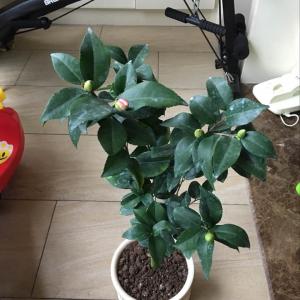动态 (175)
Zeev Kwan
2023年10月30日

Understanding the Dynamics of the Workplace
The first step towards career advancement is gaining a deep understanding of your workplace's dynamics. This goes beyond knowing the basics of your job description. Delve into the organizational structure, the key decision-makers, and the core values that drive business decisions. Recognize the interdependencies between departments and how collaborative efforts can lead to overall business success. By understanding where you fit within the broader picture, you can position yourself as a vital asset and increase your visibility.Proactive Skill Development
In today's rapidly evolving job market, resting on your laurels can result in stagnation. Proactively seeking opportunities to develop new skills can propel you ahead. This might involve enrolling in online courses, attending workshops, or even seeking mentorship within or outside your organization. By expanding your skill set, not only do you increase your efficiency in your current role, but you also prepare yourself for higher responsibilities that promotions often entail.Building Strong Professional Relationships
Networking isn't just for job seekers; it's a continuous process that can significantly impact career growth. Forge genuine relationships within your organization. This includes peers, subordinates, superiors, and stakeholders. These relationships can provide invaluable insights, offer guidance, and even advocate for your promotion when the time comes. Remember, promotions often factor in peer and subordinate feedback, so having strong interpersonal relationships can be a significant asset.Delivering Consistent Results
While skills and networking are crucial, at the heart of any promotion is performance. Delivering consistent and quantifiable results is essential. This doesn't mean just meeting targets but often exceeding them. Demonstrating initiative, leading projects, and showcasing problem-solving abilities can paint you as a reliable and effective employee, ready for the next step in the organizational hierarchy.Communicating Aspirations and Seeking Feedback
If you're eyeing a specific role or promotion, communicate this to your superiors. Open discussions about your career path can provide clarity on what's expected and areas of improvement. Regularly seek feedback, and more importantly, act on it. Demonstrating a receptive attitude towards constructive criticism and showing tangible improvements can position you as a mature and growth-oriented professional.Preparing for the Interview and Negotiation
When the opportunity for a promotion arises, it often involves an interview process. Treat this with the same seriousness as you would an external job interview. Research the new role, prepare for potential questions, and practice articulating your achievements. If successful, be ready to negotiate. Understand your worth, the market rate for the new role, and be prepared to discuss additional benefits, training opportunities, and other relevant factors.Conclusion: Crafting a Sustainable Career Growth Strategy
Career advancement is a blend of strategic planning, consistent performance, and interpersonal skills. By understanding the nuances of your organization, continuously upskilling, nurturing professional relationships, and demonstrating value, you pave the way for a fulfilling and upward-moving career trajectory.
文章
Zeev Kwan
2023年10月29日

Introduction
The decision to choose a college major is a significant milestone in a student's academic journey, carrying implications for future career opportunities and personal fulfillment. It's a crossroads laden with potential and possibilities, requiring careful consideration and introspection. This comprehensive guide aims to shed light on the crucial factors to consider, helping students navigate this pivotal decision with confidence.Understanding Yourself: Interests, Strengths, and Values
The journey to selecting the right college major begins with a deep dive into understanding oneself. What are your passions? What subjects do you excel in? And most importantly, what values drive your life’s ambitions? Reflecting on these questions can unveil a clear path toward a major that not only aligns with your skills but also fuels your passion. It's about finding that sweet spot where your interests intersect with your strengths, leading to both personal satisfaction and academic success.Research and Exploration: Delving into Potential Majors
Once you have a better understanding of your personal inclinations, the next step is thorough research. Explore various fields of study, delving into the curriculum, potential career paths, and industry growth prospects. Attend college fairs, speak with academic advisors, and reach out to professionals already established in fields that interest you. Gaining insights from these resources can provide a clearer picture of what each major entails and how it aligns with your long-term goals.The Role of Career Prospects in Decision-Making
While passion is a crucial component in choosing a major, practical considerations such as job availability, salary expectations, and industry growth cannot be overlooked. Researching the job market, understanding industry trends, and considering the long-term stability of certain fields are essential steps in making an informed decision. It’s about striking a balance between following your passion and ensuring financial stability.Flexibility and Versatility: Preparing for an Evolving Job Market
In today's rapidly changing world, the job market is more dynamic than ever. Choosing a major that offers flexibility and versatility can be a strategic move, providing a broader skill set that can be applied across various industries. This adaptability can be particularly beneficial in navigating uncertain economic times or shifting industry landscapes.Seeking Advice and Mentorship
Navigating the maze of college majors can be daunting, but you don't have to do it alone. Seek advice from mentors, professors, and industry professionals who can provide valuable insights and share their own experiences. These conversations can offer a new perspective, helping to clarify doubts and reinforce your decision.Considering the Long-Term: Future Education and Career Advancement
When choosing a major, it’s important to look beyond the undergraduate experience, considering how this decision aligns with your long-term educational and career goals. Will this major provide the necessary foundation for graduate studies or professional certifications if required in your chosen field? Ensuring that your major sets you up for future success is a critical aspect of the decision-making process.Conclusion: Embracing the Journey with Confidence
Choosing the right college major is a pivotal decision, one that requires self-reflection, thorough research, and thoughtful consideration. By understanding your own strengths and values, exploring various fields of study, and weighing the practical aspects of job prospects and industry stability, you can make an informed decision that aligns with both your personal and professional aspirations. Remember, this is a journey of self-discovery and growth, and with the right approach, you can unlock your full potential and set the stage for a fulfilling future.
文章
Zeev Kwan
2023年10月29日

Introduction
Living is a remarkable experience that encompasses a myriad of emotions, challenges, and opportunities. It is a journey filled with ups and downs, joys and sorrows, and countless moments that shape who we are. In this article, we will delve into the essence of living, exploring its meaning, significance, and the ways in which we can fully embrace and appreciate the beauty of existence.The Meaning of Living
Living goes beyond mere existence; it is the active engagement with the world around us. It is about experiencing the wonders of life, forming connections with others, and pursuing our passions and dreams. Living is about finding purpose and meaning in every moment, big or small, and making the most of the time we have.The Beauty in Everyday Moments
Often, we find ourselves caught up in the pursuit of grand achievements and extraordinary experiences, neglecting the beauty that lies within the ordinary. However, it is in the small and seemingly insignificant moments of life that true joy and fulfillment can be found. Whether it is savoring a cup of coffee in the morning, watching a sunset, or sharing laughter with loved ones, these simple pleasures remind us of the richness of living.The Power of Gratitude
Gratitude is a transformative practice that allows us to fully appreciate the gift of living. It shifts our focus from what is lacking to what is present, cultivating a sense of contentment and appreciation for the blessings in our lives. By practicing gratitude daily, we become more aware of the beauty that surrounds us, fostering a deeper connection with ourselves and the world we inhabit.Embracing Change and Growth
Living is synonymous with growth and evolution. We are constantly faced with new experiences, challenges, and opportunities for self-discovery. Embracing change is essential for personal development, as it allows us to learn, adapt, and expand our horizons. By stepping out of our comfort zones and embracing the unknown, we open ourselves up to endless possibilities and a life enriched with meaning and fulfillment.Living Authentically
Living authentically entails being true to ourselves and honoring our values, passions, and desires. It involves embracing our unique qualities and expressing them genuinely in all aspects of life. When we live authentically, we cultivate a sense of purpose and alignment with our true selves, leading to greater happiness and fulfillment.The Power of Connection
Living is inherently intertwined with our connections to others. Meaningful relationships and a sense of belonging are vital aspects of a fulfilling life. By fostering genuine connections with family, friends, and community, we enrich our experiences, find support in times of need, and create lasting memories. The power of human connection reminds us that we are not alone on this journey, and that collective experiences can bring us immense joy and fulfillment.Conclusion
Living is a gift that should be cherished and celebrated. It is about embracing the beauty of existence, finding joy in everyday moments, and growing as individuals. By cultivating gratitude, embracing change, living authentically, and nurturing meaningful connections, we can fully immerse ourselves in the vibrant tapestry of life. So, let us embark on this journey with open hearts and open minds, and make the most of the precious time we have been given.
文章
Zeev Kwan
2023年10月25日

Introduction
The paradigm of earning a livelihood has witnessed a dramatic shift in recent years. No longer confined to the traditional workplace, myriad opportunities to make money from the comfort of one’s home have blossomed. This transition, fueled by technological advancements and changing workforce dynamics, has unveiled an era where flexibility, convenience, and work-life balance aren’t just desired but attainable. In this comprehensive guide, we explore diverse strategies to turn your home into a productive, income-generating space.Freelancing
Freelancing stands as a testament to the flexibility and autonomy synonymous with working from home. As a freelancer, your home transforms into a dynamic workspace where skills, talents, and expertise translate into income.Digital Services
The digital landscape is fertile ground for professionals skilled in writing, graphic design, digital marketing, programming, and other related fields. Platforms like Upwork, Freelancer, and Fiverr connect freelancers with clients globally, enabling them to work on diverse projects, set their schedules, and earn income based on the quality and quantity of their output.Consultancy
If you’re a seasoned professional with years of experience, consultancy can be a lucrative avenue. By offering expert advice and insights, consultants aid businesses in navigating challenges, optimizing operations, and achieving organizational objectives, all from the comfort of their homes.E-Commerce
The e-commerce revolution has democratized retail, enabling individuals to start online stores, sell products, and earn money, all from home.Dropshipping
Dropshipping offers an opportunity to sell products online without managing inventory. You focus on marketing and customer service, while a third party handles inventory and shipping. This model minimizes risk and overhead, making it an attractive option for home-based entrepreneurs.Handmade Crafts
For the creatively inclined, platforms like Etsy offer a marketplace to sell handmade crafts, art, and unique products. Your home becomes both a creative studio and a business hub where creativity translates into financial gains.Online Content Creation
The insatiable appetite for online content offers content creators opportunities to earn money from home.Blogging
Starting a blog in a niche you’re passionate about can be a source of income. By offering valuable content, attracting traffic, and monetizing through ads, affiliate marketing, or selling digital products, your passion and expertise can transform into a profitable venture.YouTube
If video content is your forte, YouTube offers a platform to earn through ad revenue, sponsorships, and merchandise. Content creators can explore niches ranging from education and entertainment to lifestyle and technology.Remote Work
More companies are adopting remote work policies, offering employees the luxury to work from home while enjoying the benefits of full-time employment.Telecommuting
Telecommuting is not just a response to the global crises but a flexible work arrangement where employees perform their roles remotely. Various positions, from customer service and administrative roles to professional and technical jobs, can now be done remotely.Virtual Assistance
Virtual assistants are in demand for their ability to manage administrative, social media, customer service, and other tasks remotely. With organizational skills, reliability, and expertise, your home office can be the epicenter of a thriving virtual assistance business.Conclusion
The avenues to make money from home are as diverse as they are lucrative. Each pathway, from freelancing and e-commerce to content creation and remote work, is a testament to a world where the confines of the traditional office are transcended, and the home emerges as a space of productivity, income, and professional fulfillment. As we explore these paths, we don’t just earn money but craft lifestyles characterized by autonomy, flexibility, and the profound integration of work, life, and play.
文章
Zeev Kwan
2023年10月22日

Introduction
In the evolving landscape of psychological sciences, positive psychology emerges as a beacon of transformation. It transcends the traditional focus on mental disorders and pathologies, steering the narrative towards human strengths, virtues, and potentials. This branch of psychology doesn’t just analyze and address mental health issues but is dedicated to enhancing the quality of life, fostering a sense of fulfillment, and illuminating pathways to optimal human functioning.Foundational Principles
Positive psychology is anchored in the exploration and enhancement of positive emotions, strengths, and factors that contribute to a fulfilling life. It is a journey that ventures beyond the alleviation of mental illnesses, stepping into the gardens of human potentials where strengths, virtues, and capacities bloom.Positive Emotions
One of the pillars of positive psychology is the cultivation and amplification of positive emotions. It underscores the profound impacts of emotions like joy, gratitude, and contentment on psychological well-being. These emotions are not passive by-products of external circumstances but are fostered and nurtured through conscious efforts, practices, and interventions, radiating their influences on mental health, resilience, and overall well-being.Engagement
Engagement with life’s activities and experiences forms another cornerstone. Positive psychology explores pathways to immerse individuals in their endeavors, fostering a state of ‘flow’ where time dissipates, and one is wholly consumed and invigorated by the task at hand. This engagement fuels a sense of purpose, mastery, and fulfillment, echoing profound impacts on mental health and life satisfaction.Applications and Interventions
Positive psychology isn’t a theoretical sanctuary but a pragmatic field where principles are translated into tangible interventions, fostering enhanced well-being, resilience, and fulfillment.Strengths-Based Approaches
One of the revolutionary contributions of positive psychology lies in its strengths-based approaches. Unlike traditional models that focus on fixing weaknesses, positive psychology emphasizes identifying and amplifying individual strengths. It is a shift from pathology to potential, where therapy, counseling, and coaching are avenues to unveil, nurture, and optimize human capacities, talents, and virtues.Well-being Enhancement
Furthermore, the well-being enhancement strategies emerging from positive psychology are grounded in empirical research and practical applications. They incorporate interventions like gratitude journals, mindfulness practices, and positive affirmations, each meticulously designed to foster positive emotions, enhance psychological resilience, and promote mental well-being.Impact on Traditional Psychology
Positive psychology has breathed a fresh air into the realms of traditional psychology. Its influences are not just in expanded research but in reshaping therapeutic, educational, and organizational practices.Therapeutic Transformations
In therapy and counseling, positive psychology has inspired a renaissance. Therapists are not just fixated on alleviating mental ailments but are sculptors of human potential, utilizing tools and techniques that foster strengths, enhance resilience, and catalyze the holistic well-being of individuals.Educational Innovations
In educational settings, positive psychology has inspired curricula that foster life skills, emotional intelligence, and character strengths. Schools and institutions are becoming gardens where not just intellectual but emotional, social, and psychological faculties are nurtured, crafting holistic individuals ready to navigate life’s complexities with grace.Conclusion
Positive psychology heralds a future where mental health is not just the absence of mental illnesses but the presence of virtues, strengths, and positive emotions. It’s a world where individuals are not just survivors but thrivers, not just existent but radiant, each a beacon of potentials unveiled, strengths optimized, and virtues personified. As we embrace the tenets of positive psychology, we step into a world that isn’t just healed but is illuminated, echoing the silent yet resplendent narrative of a humanity that’s not just living, but thriving.
文章
Zeev Kwan
2023年10月18日

Introduction
Embarking on a journey within the intricate realms of human psychology and wellness, positive thinking emerges, not as an abstract concept, but as a concrete, measurable catalyst of health and healing. The bridges between an optimistic outlook and enhanced wellbeing are not constructed from whimsical notions, but are founded on robust scientific principles and extensive research. Each piece of evidence weaves a narrative that transcends the anecdotal, offering empirical insights into the profound impacts that positive thinking imprints on the mental, emotional, and physical fabrics of the human existence.Psychological Resilience
Positive thinking is a beacon that illuminates paths of enhanced psychological resilience. Researchers and psychologists across the globe have unified their voices in echoing findings that underscore the enriched coping mechanisms inherent in optimists. Amidst the ebbs and flows of life’s adversities, positive thinkers exhibit enhanced adaptability, turning tides of challenges into oceans of opportunities. Their mental fortitude is not innate but is meticulously carved and nurtured by a mindset that views hurdles as stepping stones and adversities as learning curves.The Role of Neuroplasticity
At the neural level, the magic of positive thinking unfolds through the dynamic landscape of neuroplasticity. Every optimistic thought and affirmative emotion is a chisel that sculpts the brain's pathways, promoting enhanced cognitive adaptability and mental agility. The brain, a canvas of infinite potentials, responds to positivity by fostering connections that are the conduits of learning, adaptation, and resilience. In the meticulously orchestrated symphony of neural processes, positive thinking is the conductor, guiding harmonious rhythms of adaptability and strength.Stress Reduction
In the echoing halls of stress reduction, positive thinking reigns supreme. Every positive thought is akin to a sanctuary where the tumultuous storms of stress are quelled, and tranquility prevails. In this sanctified space, cortisol levels dip, breathing eases, and the soul finds its serene repose. Scientific studies lend their voice to this narrative, offering empirical data that underscores reduced stress levels and enhanced coping mechanisms in individuals imbued with positivity.Physical Health Benefits
In the tangible realm of physical health, positive thinking unveils its impacts with pronounced eloquence. The body, a meticulous recorder of emotional and mental states, mirrors the benefits of optimism in enhanced immunity, reduced disease prevalence, and enriched overall wellbeing. Every optimistic thought is a seed that sprouts, not just in the mental gardens, but extends its roots into the physical realms, echoing the silent yet profound narrative of holistic health.Cardiovascular Health
Cardiovascular health, a cornerstone of physical wellbeing, is intricately linked to the mental outlook. Optimists, adorned with positive thinking, embark on journeys of reduced cardiovascular risks, enhanced heart health, and optimized blood pressure levels. Their paths, illuminated by affirmative emotions, are characterized by lifestyle choices that echo the rhythms of holistic wellness, integrating the mind, body, and soul in the harmonious dance of existence.Immune Function
In the domain of immunity, positive thinking emerges as an unyielding fortress. Scientific studies narrate tales of optimists who, armored with positive emotions, exhibit enhanced immune responses. Every bout of laughter, every affirmative emotion, is a soldier fortifying the battalions of immune cells, crafting an impervious defense against pathogens and ailments.The Biochemical Connection
The mysteries of the biochemical world unveil the tangible connections between positive thinking and physiological health. Every thought, emotion, and belief, meticulously scripted in the language of biochemical reactions, narrates a tale that echoes in the corridors of cellular functions, immune responses, and overall physical health.Endorphin Release
Positive thinking is a potent alchemist, transmuting mental states into biochemical realities. Endorphins, the heralds of happiness and euphoria, respond to the call of positivity. Each optimistic thought, every uplifting emotion, catalyzes the release of these ‘feel-good’ hormones, painting the physiological canvas with strokes of happiness, pain relief, and overall wellbeing.Cortisol Regulation
The dance between positive thinking and cortisol regulation is a ballet of precision. In the world where mental states echo in biochemical rhythms, optimism tempers the release of cortisol. Lower stress levels, reduced inflammation, and enhanced sleep quality are the sonnets that narrate the impacts of reduced cortisol, each line echoing the profound benefits of positive thinking.Conclusion
The narrative of positive thinking is a saga that transcends the boundaries of the metaphysical, grounding itself in the tangible, measurable realms of science. Each chapter, scripted in the language of neural pathways, biochemical reactions, and physiological responses, echoes the profound impacts of optimism. As we turn each page, we are not just readers but active participants in a journey where each positive thought, each optimistic outlook, is a stepping stone to enhanced mental, emotional, and physical wellbeing.
文章
Zeev Kwan
2023年10月16日

Introduction
The place we call home, the sacred space where we retreat to unwind, refresh, and rejuvenate, comes in diverse forms and styles. From the cozy confines of apartments to the sprawling expanse of houses, each type of living space offers a unique blend of experiences, amenities, and atmospheres. In this comprehensive guide, we traverse the landscape of living spaces, offering insights, comparisons, and considerations to help you find the dwelling that resonates with your lifestyle, preferences, and needs.Apartments
Apartments are synonymous with urban living, offering a compact, convenient, and often, a more affordable living option. They are characterized by their location in multi-unit buildings, offering a variety of sizes from studio to multi-bedroom units.Pros
Apartments are often located in the heart of cities, offering proximity to workplaces, shopping centers, and urban amenities. They are typically easier to maintain, given their size, and often come with added security features and community amenities like gyms and pools.Cons
However, apartments can sometimes lack privacy and outdoor space. They may also come with restrictions set by landlords or property management, limiting customization and personalization of the space.Houses
Houses represent the quintessential family dwelling, offering space, privacy, and the freedom to customize and expand. They are diverse, ranging from quaint cottages to luxurious mansions.Pros
Houses offer greater privacy, ample outdoor space, and the freedom to modify and personalize the living space. They are ideal for families, providing room to grow, play, and entertain.Cons
However, houses typically involve higher maintenance efforts and costs. They may also be located further from urban centers, necessitating longer commutes and less access to urban amenities.Condominiums
Condominiums blend the convenience of apartment living with the ownership privileges of houses. Condo owners have individual ownership of their units while sharing common areas.Pros
Condos often come with enhanced security, maintenance services, and shared amenities like pools and fitness centers. They offer a sense of community while maintaining the privilege of ownership.Cons
Ownership comes with homeowners' association (HOA) fees, and condo owners must adhere to the rules and regulations set by the HOA. There might be limitations on personalization and modifications of the units.Co-Living Spaces
A relatively new entrant in the housing landscape, co-living spaces offer shared living arrangements, often targeting young adults, professionals, and students.Pros
These spaces promote community living, offering shared amenities and social opportunities. They are typically fully furnished, with utilities and maintenance included, making them convenient and hassle-free.Cons
Privacy can be limited in co-living spaces, and residents must be amenable to shared living arrangements, including communal spaces and amenities.Conclusion
The spectrum of living spaces is as diverse as the individuals seeking them. Each option, from the cozy apartment nestled in the vibrant heart of the city to the serene house set amidst tranquil suburbs, offers a distinct living experience. In this dance of choices, considerations of space, privacy, maintenance, location, and community converge, guiding each seeker to the dwelling that not just shelters but resonates with their lifestyle, aspirations, and needs.
文章
Zeev Kwan
2023年10月11日

Introduction
The enigmatic embrace of nature has long been lauded for its therapeutic effects on the human spirit. Verdant landscapes, serene bodies of water, and the symphonic sounds of wildlife don’t just allure aesthetically, but extend their tendrils into the intricate pathways of the human psyche, enhancing mental and physical well-being. This discourse elucidates the multifaceted impacts of nature on our holistic health, unraveling the tapestry where mental, emotional, and physical threads intertwine.The Serenity of Green Spaces
Green spaces, lush with flora and often marked by the calming presence of fauna, serve as sanctuaries of tranquility. Scientific studies have converged on the stress-relieving effects of these environments. The sounds of rustling leaves, the aromatic scent of blossoming flowers, and the visual feast of verdant expanses work in harmony to alleviate anxiety, depression, and stress.Mindfulness and Nature
Nature immersion is intricately linked to the practice of mindfulness. The natural environment fosters a state of present awareness, where each breath is a symphony of sensory experiences. Nature’s beauty facilitates a deepening connection to the present moment. This elevated consciousness is linked to enhanced mental clarity, improved concentration, and a tranquil state of mind.Physical Vigor and Vitality
Beyond the mental sphere, nature’s touch extends to physical vitality. Outdoor activities, often facilitated by enticing natural environments, enhance cardiovascular health, improve respiratory function, and foster overall physical endurance. Nature isn’t just a silent spectator; it’s an active participant, beckoning the human spirit into the dance of physical activity.Healing Power of Natural Elements
Water, earth, air, and sunlight; these elemental forces of nature wield a therapeutic touch. Sunlight, a natural source of Vitamin D, enhances bone health and immune function. The air in natural environments, rich in oxygen, invigorates the body’s cells. Nature’s elements are not just passive constituents of the environment; they are active alchemists of human health.Nature’s Influence on Emotional Resilience
Emotional well-being finds a staunch ally in nature. The sensory experience of nature invokes positive emotional responses. It transcends the ephemeral rush of positivity, embedding itself into the human emotional fabric, enhancing resilience, and equanimity. Nature’s visual and auditory experiences are emotional sonnets, articulating a language of peace, balance, and harmony.The Social Cohesion Fostered by Nature
Nature fosters social bonds. Parks and natural environments are communal spaces where social interactions flourish. These interactions are not trivial; they are instrumental in enhancing mood, fostering a sense of belonging, and enhancing the quality of social relationships. Nature is the silent orchestrator of social symphonies, where human connections are forged and nurtured.Nature and Cognitive Functionality
Cognitive functions are markedly enhanced by interactions with nature. Attention, memory, and cognitive flexibility are honed in natural environments. Nature is not just a passive backdrop; it is an active stimulant of cognitive processes, fostering mental agility, alertness, and cognitive endurance. Each natural element, from the intricate patterns of leaves to the harmonious sounds of wildlife, is a cognitive stimulant.Preserving Nature for Holistic Health
As the discourse on nature’s impacts on well-being unfolds, the imperative to preserve and nurture natural environments becomes paramount. Environmental conservation isn’t just an ecological necessity; it is a holistic health imperative. Each tree preserved, each body of water protected, is a step towards safeguarding the natural sanctuaries of holistic well-being.Conclusion
Nature is not a luxury; it is a profound necessity, intricately woven into the fabric of human mental, physical, and emotional well-being. Each natural element, each green space, and each interaction with the natural world is a step into the sanctuary of holistic health. In the embrace of nature, humanity finds not just an aesthetic retreat, but a home where the mind, body, and spirit find their harmonious symphony, where healing, peace, and vitality converge.
文章
Zeev Kwan
2023年10月08日

Unlocking the Secrets of Memory
Memory is the foundation of human cognition, shaping our ability to learn, adapt, and navigate the complexities of life. It's not a fixed trait but a dynamic skill that can be cultivated and refined. In this article, we'll embark on a journey to explore the art of memory enhancement, unveiling practical strategies to supercharge your recall abilities. Whether you're a student aiming to conquer exams or an individual eager to remember names, facts, and experiences, these techniques will empower your memory prowess.Demystifying Memory
Before we dive into memory-boosting techniques, let's unravel the enigma of memory itself. Memory comprises three fundamental stages:- Encoding: This inaugural phase involves absorbing information and converting sensory input into a format that the brain can retain. It's akin to capturing snapshots of the world around us.
- Storage: Once encoded, memories find their homes in various regions of the brain. Some reside temporarily in short-term memory, while others are transferred to long-term memory for more extended retention.
- Retrieval: This is the process of accessing stored information when needed. Effective retrieval relies on cues and connections between neurons in the brain.
Memory Enhancement Strategies
1. Stay Organized
Organization is the cornerstone of effective memory. Utilize calendars, to-do lists, and planners to keep track of important dates and tasks. By externalizing this information, you free up mental resources for other memory-related activities. In a fast-paced world filled with information overload, staying organized provides a structured framework for memory retention. When you jot down important dates, tasks, and appointments, your brain can focus on processing and retaining other valuable information.2. Get Adequate Sleep
Sleep plays a pivotal role in memory consolidation. Aim for 7-9 hours of quality sleep per night. During deep sleep, the brain processes and organizes information, strengthening memory traces. Quality sleep is not just a restorative process for the body; it's a fundamental requirement for a healthy mind. While you sleep, your brain reviews and organizes the day's events, transferring information from short-term to long-term memory storage. This consolidation process enhances your ability to recall facts, skills, and experiences.3. Stay Physically Active
Regular exercise enhances blood flow to the brain and stimulates the release of chemicals that support cognitive function. Strive for at least 150 minutes of moderate-intensity exercise per week. Exercise is not only beneficial for your physical health but also for your cognitive well-being. When you engage in regular physical activity, you promote the flow of oxygen and nutrients to your brain. Additionally, exercise triggers the release of neurotransmitters like dopamine and serotonin, which contribute to improved mood, focus, and memory.4. Manage Stress
Chronic stress can impede memory function. Practice stress management techniques such as mindfulness, meditation, or deep breathing to reduce its impact on memory. Stress is a formidable adversary to memory. When you're stressed, the body releases cortisol, a hormone that can impair memory formation and retrieval. By adopting stress-reduction strategies, you create a more conducive environment for memory enhancement. Techniques like mindfulness and meditation calm the mind, allowing it to function optimally and improve memory retention.5. Stay Mentally Active
Engage in activities that challenge your brain, such as puzzles, crosswords, and brain-training games. Learning new skills and acquiring knowledge not only keep your mind sharp but also stimulate memory retention. Your brain is like a muscle that becomes stronger with regular exercise. By engaging in mentally stimulating activities, you stimulate the growth of new neural connections, enhancing your cognitive abilities, including memory. Activities like solving puzzles, learning a new language, or mastering a musical instrument can keep your brain agile and resilient.6. Maintain a Healthy Diet
A well-balanced diet rich in antioxidants and omega-3 fatty acids can support brain health and memory. Include foods like berries, leafy greens, fatty fish, and nuts in your diet. A nutritious diet provides the fuel your brain needs to function optimally. Certain foods contain antioxidants that protect brain cells from oxidative stress, while omega-3 fatty acids support the structure and function of brain cell membranes. By nourishing your brain with the right nutrients, you enhance memory and cognitive performance.7. Stay Socially Connected
Regular social interactions and meaningful conversations stimulate cognitive functions, including memory. Cultivate and maintain relationships with friends and family. Human beings are inherently social creatures, and social interactions are essential for brain health. Engaging in conversations, sharing experiences, and connecting with others stimulate various cognitive functions, including memory. Meaningful social interactions offer mental stimulation and emotional support, contributing to memory enhancement.8. Practice Visualization
Visualizing information can make it easier to remember. Create mental images or mind maps to represent complex concepts or lists. Visualization is a potent memory technique that taps into the brain's innate ability to process and recall images more effectively than abstract concepts. By visualizing information, you create vivid mental images that serve as memory anchors. Whether you're remembering a shopping list or learning a new concept, visualization can significantly enhance your recall abilities.9. Use Mnemonic Devices
Mnemonic techniques, such as acronyms, rhymes, and memory palaces, can help you remember information more effectively. These devices create associations that aid recall. Mnemonic devices are memory aids that leverage patterns, associations, or creativity to facilitate information retention. For example, creating an acronym to remember a list of items or using a rhyme to memorize facts can make recall effortless. Memory palaces, a technique dating back to ancient Greece, involve mentally placing information in familiar locations, such as rooms in a house. These devices provide mental hooks that make it easier to retrieve stored information.10. Teach What You've Learned
Explaining a concept or idea to someone else reinforces your own understanding and memory of it. Share your knowledge with friends, family, or colleagues. The act of teaching is a powerful tool for reinforcing memory and understanding. When you explain a concept to others, you're required to retrieve and convey information accurately. This process not only solidifies your own comprehension but also strengthens memory pathways. Sharing your knowledge with others not only benefits them but also enhances your memory retention.Conclusion
Memory is a remarkable cognitive function that can be nurtured and improved throughout life. By implementing these memory enhancement strategies into your daily routine, you can unlock the full potential of your memory. Whether you're aiming to excel academically, enhance your professional skills, or simply enjoy a more vibrant memory in your daily life, these techniques are your key to success. Remember, improving your memory is not a quick fix but a journey that requires consistency and practice. With dedication and the right strategies, you can harness the power of your mind and achieve remarkable feats of memory.
文章
Zeev Kwan
2023年10月04日

Introduction
Creating a budget and sticking to it is a fundamental skill for achieving financial stability and reaching your financial goals. A well-structured budget acts as a roadmap for managing your income, expenses, and savings. In this article, we'll explore the art of budgeting and provide practical tips to help you create a budget that works for you and maintain it effectively.Understanding the Importance of Budgeting
Budgeting is the foundation of sound financial management. It enables you to track your income, allocate funds for various expenses, and save for the future. A budget helps you: - **Gain Control:** A budget provides a clear picture of your financial situation, allowing you to take control of your money. - **Reduce Stress:** Knowing where your money is going reduces financial stress and uncertainty. - **Achieve Goals:** Budgeting helps you work toward financial goals, whether it's paying off debt, buying a home, or saving for retirement.Creating Your Budget
**Step 1: Calculate Your Income** Start by calculating your total monthly income. Include all sources, such as your salary, rental income, investments, and any other sources of income. **Step 2: List Your Expenses** Create a comprehensive list of your monthly expenses. Categorize them into fixed expenses (e.g., rent or mortgage, utilities, insurance) and variable expenses (e.g., groceries, dining out, entertainment). Don't forget to account for irregular expenses, such as annual subscriptions or car maintenance, by averaging their costs on a monthly basis. **Step 3: Set Financial Goals** Define your short-term and long-term financial goals. These could include building an emergency fund, paying off credit card debt, saving for a vacation, or investing for retirement. Having clear goals will motivate you to stick to your budget. **Step 4: Allocate Funds** Allocate a portion of your income to cover your essential expenses, such as housing, utilities, and groceries. Prioritize savings and debt payments next. Finally, allocate funds for non-essential expenses like dining out and entertainment. **Step 5: Monitor Your Progress** Regularly track your spending to ensure you're staying within your budget. Many budgeting apps and software can help you with this task. Adjust your budget as needed if you encounter unexpected expenses or changes in income.Tips for Sticking to Your Budget
- **Be Realistic:** Set achievable budgeting goals. If your budget is too restrictive, you're more likely to abandon it. - **Emergency Fund:** Include building an emergency fund as a budget priority. Having a financial safety net prevents you from relying on credit in emergencies. - **Use Envelopes or Categories:** Consider using the envelope system or budgeting categories to allocate cash for specific expenses. When the envelope is empty, you're done spending in that category for the month. - **Avoid Impulse Purchases:** Before making non-essential purchases, give yourself time to think. Delaying gratification can help you avoid impulse buying. - **Review Regularly:** Set aside time each week or month to review your budget. This helps you stay on track and make adjustments as needed. - **Seek Accountability:** Share your budgeting goals with a trusted friend or family member who can hold you accountable. - **Cut Unnecessary Expenses:** Periodically review your expenses to identify areas where you can cut back. This extra money can be redirected towards savings or debt repayment.Dealing with Common Budgeting Challenges
**Challenge 1: Irregular Income** If your income varies from month to month, budgeting can be more challenging. In this case, aim to create a budget based on your lowest expected income. During months of higher income, allocate the surplus to savings or paying down debt. **Challenge 2: Unexpected Expenses** Life is unpredictable, and unexpected expenses can throw your budget off track. Build an emergency fund to cover these unforeseen costs without derailing your financial plan. **Challenge 3: Lifestyle Changes** Major life changes like getting married, having children, or buying a home can impact your budget. Adjust your budget to accommodate these changes and set new financial goals accordingly.Conclusion
Creating and sticking to a budget is a skill that can transform your financial life. By understanding your income, listing your expenses, setting clear financial goals, and regularly monitoring your progress, you gain control over your finances. Budgeting helps you achieve your short-term and long-term goals, reduce stress, and build financial security. Remember that budgeting is not about restriction but about making conscious choices that align with your values and priorities. Mastering your finances through budgeting is a key step on the path to financial success.
文章
相关用户
















